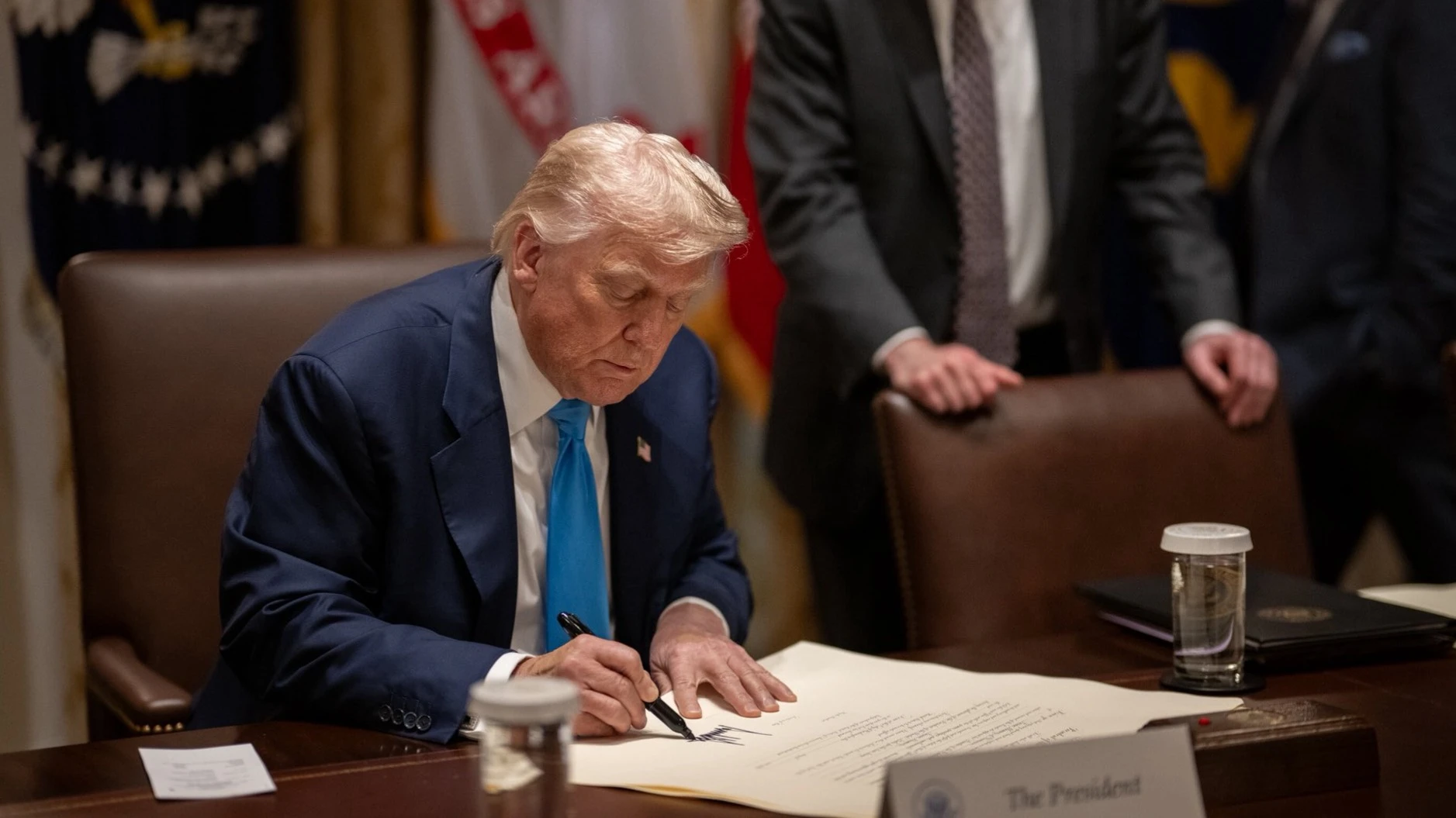Trump announced high duties on goods from dozens of countries. How did the markets react?
The new duties will come into force in a week's time

US President Donald Trump has imposed increased import duties on goods from dozens of trading partners, including Canada, Brazil, India and Taiwan. Imports from countries not on the list will be subject to an import tariff of 10% - lower than Trump had allowed. Markets, already accustomed to the sharp actions of the American leader, reacted relatively restrained this time.
Details
According to Trump's directives, the increased rates will affect nearly 70 countries and territories, including the European Union, and will take effect in seven days, writes Reuters. This will include duties on a number of goods from Brazil rising to 50% ("mirror" rate of 10% and ad valorem rate of 40%), Switzerland 39%, Canada 35%, India 25% and Taiwan 20%. Imports from countries not mentioned in the executive orders will be subject to a 10% duty. Trump previously allowed that the rate could be higher, noted the agency.
Canada and Mexico
Trump signed a separate order to raise duties on some Canadian goods from 25 percent to 35 percent, citing Canada's refusal to cooperate in the fight against drug trafficking. Перед этим Трамп заявил журналистам, что Канада «находится под очень плохим руководством».
Mexico received a 90-day delay from imposing 30 percent duties on most Mexican goods covered by the U.S.-Canada-Mexico Free Trade Agreement (USMCA) that are not automotive or steel products. The deferral was granted following a phone call between Trump and Mexican President Claudia Sheinbaum on the morning of Aug. 31.
Trump confirmed in a post on Truth Social that tariffs of 50 percent will remain in place for Mexican steel, aluminum and copper, and 25 percent for automobiles and other goods not subject to the USMCA. He also said Mexico "has agreed to immediately remove its non-tariff trade barriers," without giving details.
Disagreement with India
A 25 percent tariff will be imposed on goods from India. Negotiations with New Delhi have stalled over U.S. demands for greater access to the Indian agricultural market. Besides trade disagreements, tensions escalated after Trump threatened additional sanctions for Russian oil purchases, wrote Reuters.
Brazil
Trump imposed 50 percent duties on imports from Brazil amid tensions with Brazilian authorities over the criminal prosecution of his ally, the country's former president Jair Bolsonaro. At the same time, Trump softened the blow by exempting aircraft, energy and orange juice production from the higher duties, reported Reuters.
China
China, in turn, must strike a trade deal with the U.S. by Aug. 12 or agree to extend the duty deferral. Two days of talks between representatives of Beijing and Washington in Stockholm on July 28-29 did only result in the sides reaffirming their willingness to seek an extension of the trade truce. After the talks concluded, U.S. Treasury Secretary Scott Bessent sought to allay fears that Trump might reject an extension. "The meetings have been very constructive," said Bessent. - It's just that we haven't given our approval yet."
Market Reaction
Asian stock indices declined in trading on August 1 after the introduction of U.S. duties. The MSCI Asia ex Japan MSCI Asia ex Japan index of Asia-Pacific shares dropped by 0.9%. South Korea's KOSPI index lost 3.5%, while Taiwanese shares slipped 0.5%. Japan's Nikkei dipped 0.5%. Mainland China's blue-chip index CSI 300 and Hong Kong's Hang Seng were off 0.2%.
In exchange-traded commodities markets, oil prices stabilized after falling 1% on July 31. The spot gold price rose slightly to $3292.3 per troy ounce.
This article was AI-translated and verified by a human editor
